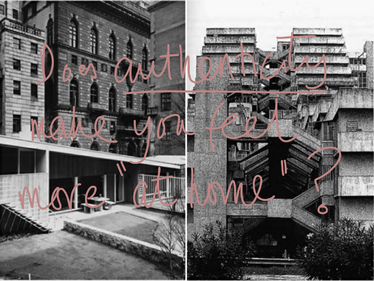
The European ‘migrant crisis’ is, without doubt, one of the major challenges of the early 21st century. Many, often highly disturbing, images of people running for border-crossings and sheltering under make-shift tents at Calais are ubiquitous in the news. There is always fear of newcomers – they are “alien”. Yet, we tend to forget that what distinguishes us from them – even more than language, culture and religion – is the fact that we dwell ‘at home’ and they are duly ‘out of place’. This highlights in a powerful way a common neglect of the significance of conceptions of ‘home’ and the ‘homely’ in our understanding of the human condition. There is a tendency for philosophers in particular to overlook that our conceptions of the ‘self’, ‘other’ and intersubjectivity intimately relate to conceptions of ‘home’. Phenomenological philosophers have at times come closest to recognising this relation (cf. Husserl’s Heimwelt and Fremdwelt, or Heidegger’s being qua dwelling), but we are still in need of an account that takes full consideration of the context of contemporary ‘modernity’, that is, of the context of rapid technological advancement and globalisation.
My project therefore identifies a tacit dichotomy between notions of ‘having a home’ and ‘being homeless’ in influential theories of modernity and urban life.
Some argue, that we live in a time of ‘homelessness’ – that authenticity is at stake. The message is clear: we must overcome the modern condition of inauthenticity. Authenticity is upheld as an ethical and existential ideal, whether this is the popular pursuit of some ‘true’ self or something deeper that connects us to a “wider whole” (Taylor, 1992: 91) in both much of philosophy and architectural theory. I will hence also look to the manifestation of ‘authenticity’ through architecture and urban space. Such a view anticipates that there are those who are more ‘at home’ (more authentic) than others. However, this overlooks that the discernment of what counts as ‘authentic’ relies on the socio-political categorisation of some people as being more ‘in place’ than others. This project therefore investigates the role this dichotomy plays in generating and perpetuating biases against homeless persons in common public perceptions and explores possibilities for conceptions of ‘home’ that could avoid those effects. I want to investigate the meaning behind the alleged ‘inauthenticity’ of homelessness and so, to challenge and investigate how this supposition dominates our senses of space and shapes the mechanisms of exclusion and devaluation we witness today.
Supervision: Filip Mattens and Julia Jansen
Phd-student working on the project: Ashika Singh
